Socotra
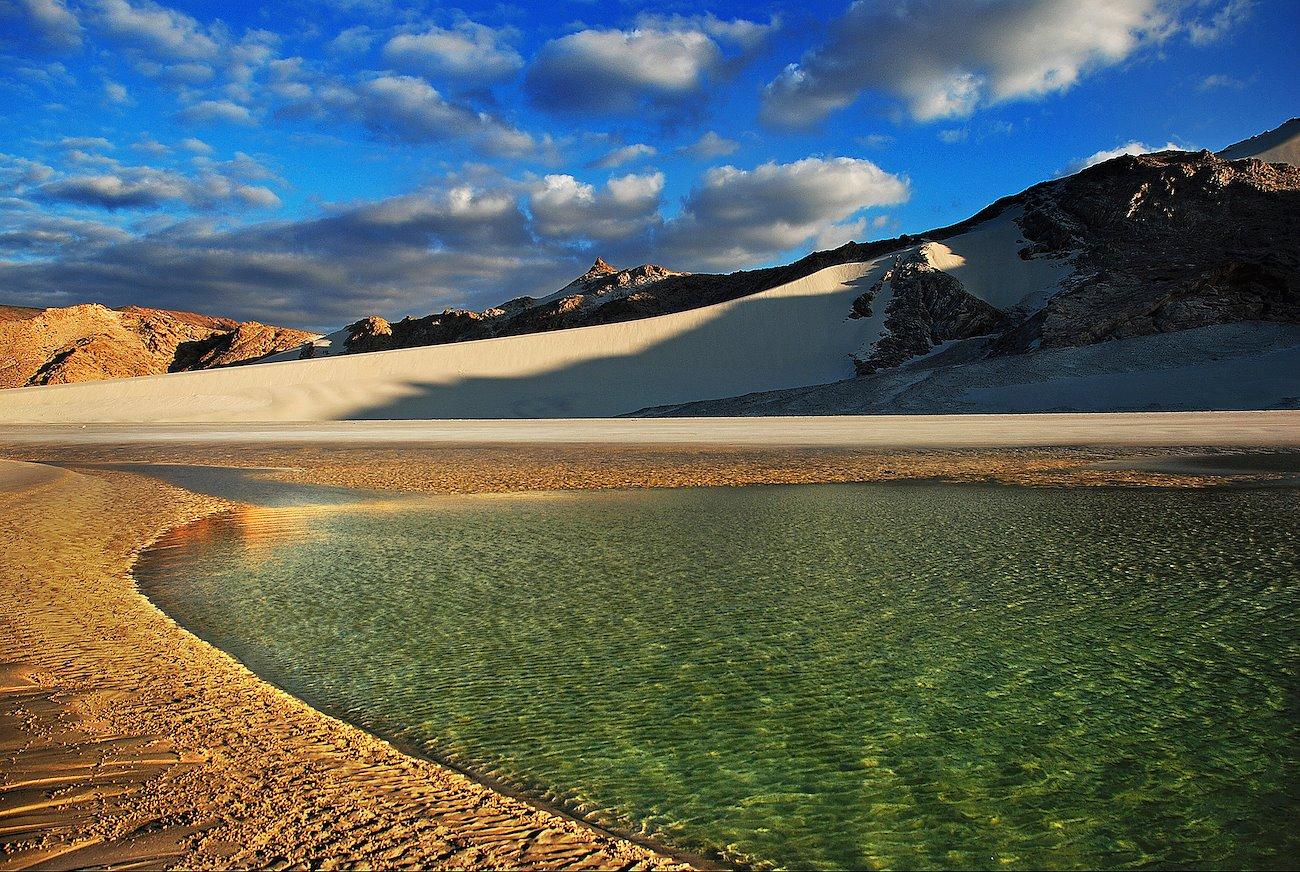
Yemen’s Island of Natural Wonder and Beauty
Socotra, an island located 380 kilometres south of the Arabian Peninsula, means “island abode of bliss” in Sanskrit. It is an island hub for international holiday makers spending their vacations enjoying the breathtaking landscape and fascinating fauna – not to mention the diving, snorkeling, and trekking. How could one not be enticed by Socotra’s rare biodiversity and stunning landscapes?
The Fall and Spring bring hordes of tourists to the island with the pleasant 18 – 27 °C (64 – 80°F) with mid-December to March considered the best time to savour the white sand beaches and soak in the spectacular national parks.
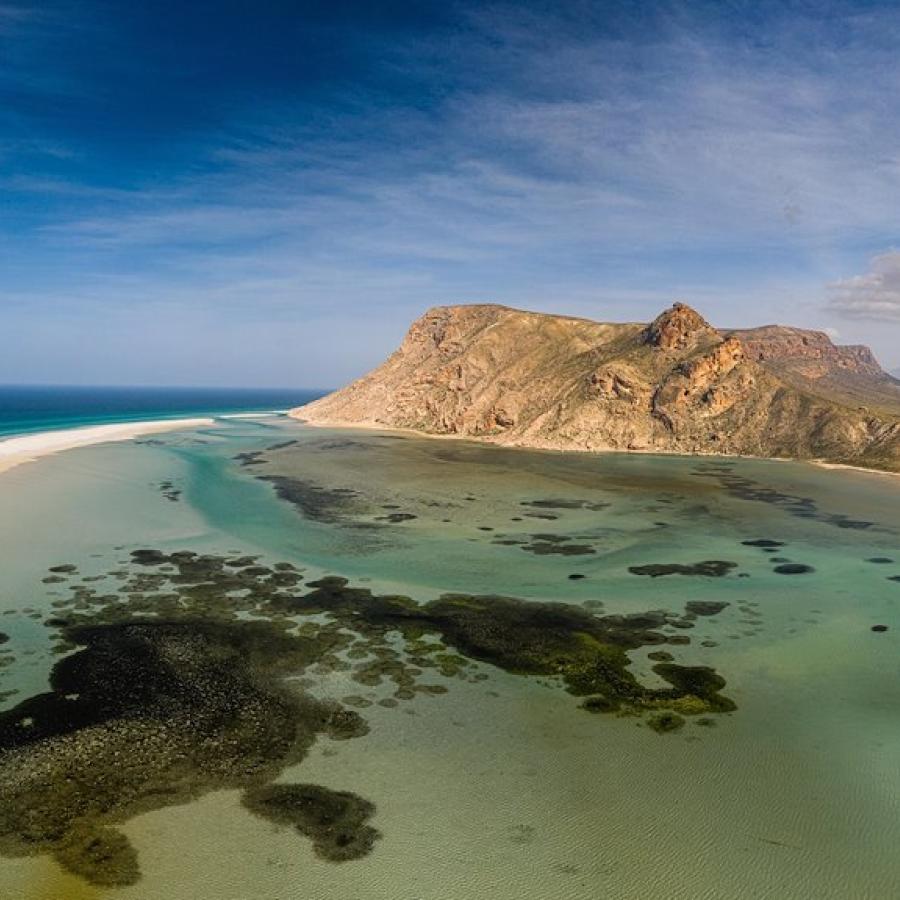
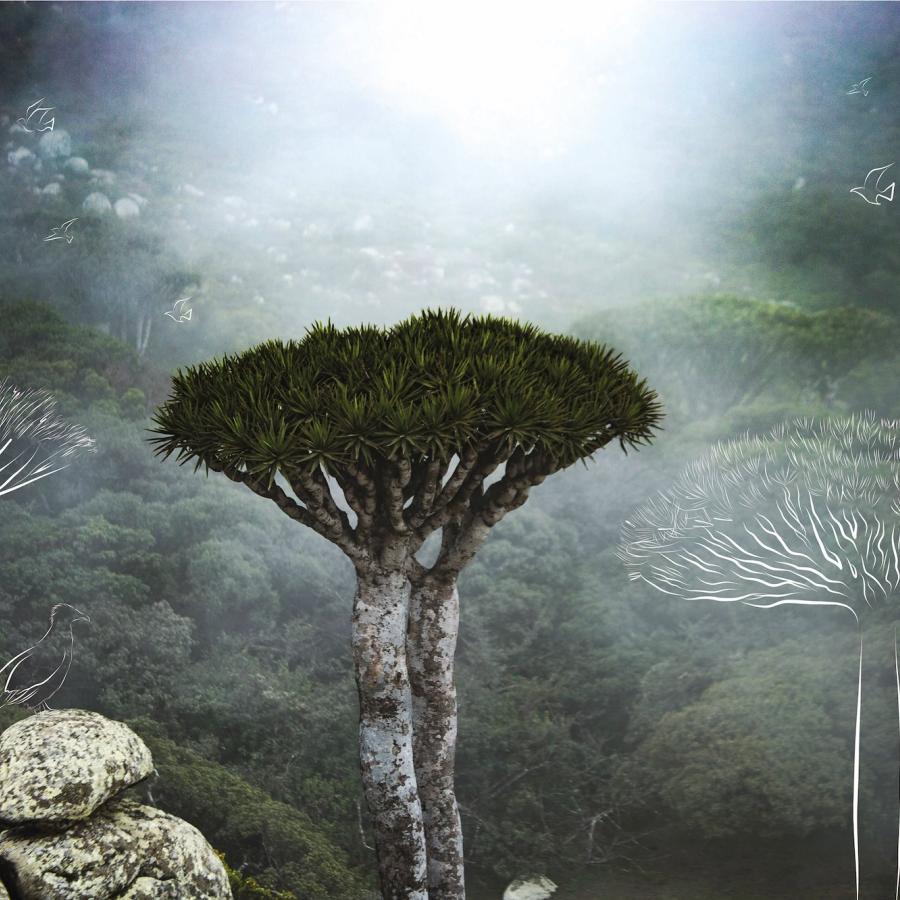
TROUBLE BREWING
But when Yemen’s war broke out in March 2015, the island was devastated. The suspension of flights from the mainland isolated the archipelago and the tourism industry – the staple of Socotra’s economy – took a nosedive. Unemployment rates steadily rose as the island’s major industry shut down, with devastating ripple effects on fishing, farming, and feeding/grazing animals.
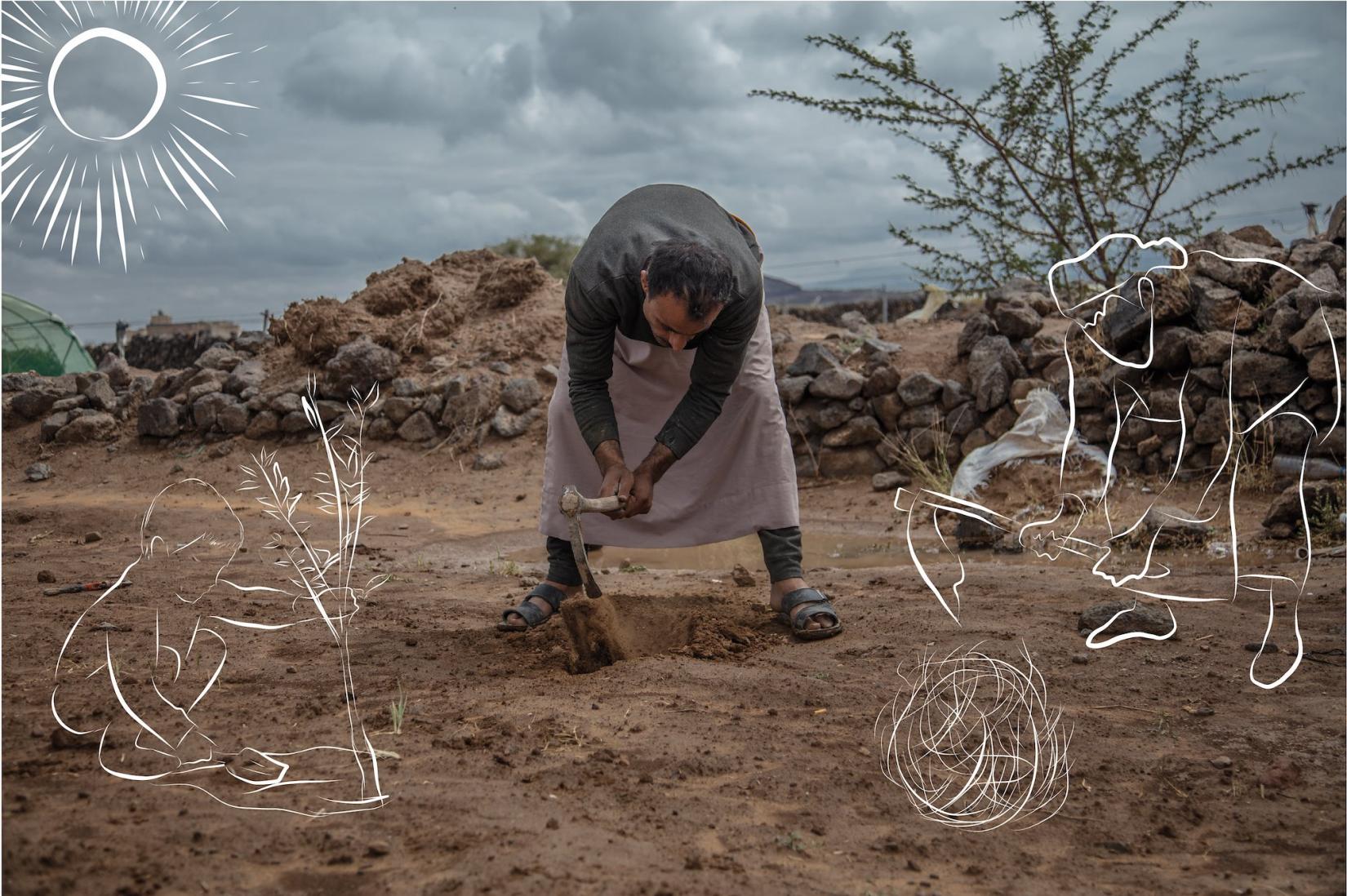
Despite its paradise status, the island faces numerous challenges as many are at the forefront of the impact of rising poverty amidst the conflict.
In addition, Mother Nature has also recently been unkind with severe water scarcity – particularly in rural areas – and devastating cyclones during the Monsoon season. These are only expected to worsen with increasing climate change effects – placing livelihoods and regular income in a precarious position.
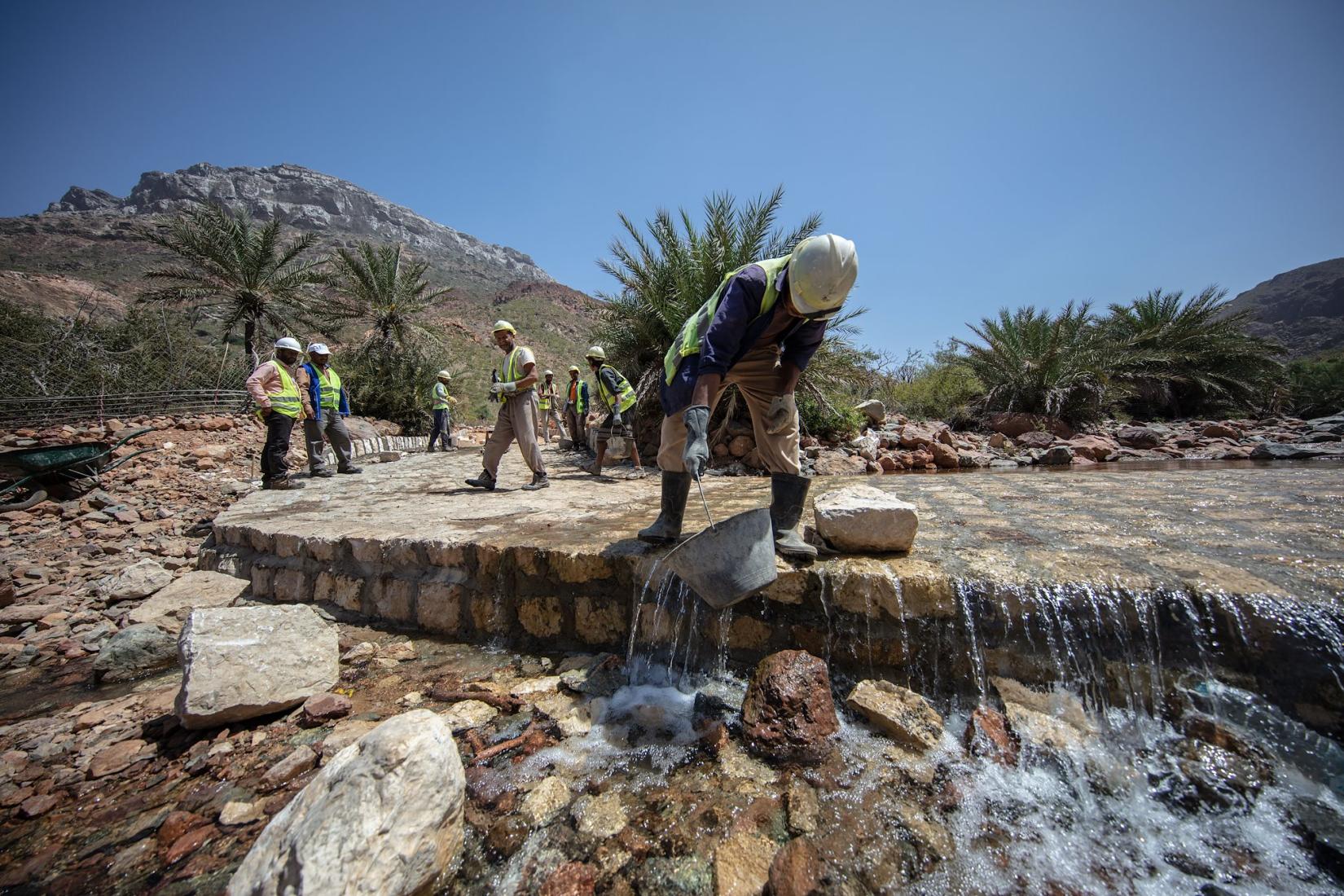
TAKING INITIATIVE
In partnership with the World Bank, the United Nations Development Programme (UNDP), the Social Fund for Development (SFD) and our partners in Socotra’s communities, continue to work toward a brighter future for this isolated paradise. By providing key services, temporary employment, increased financial stability, and new skills, Soqotris are better equipped to navigate an increasingly unpredictable geopolitical and environmental climate, and recover better from future shocks through programmes promoting economic growth and development in the region.
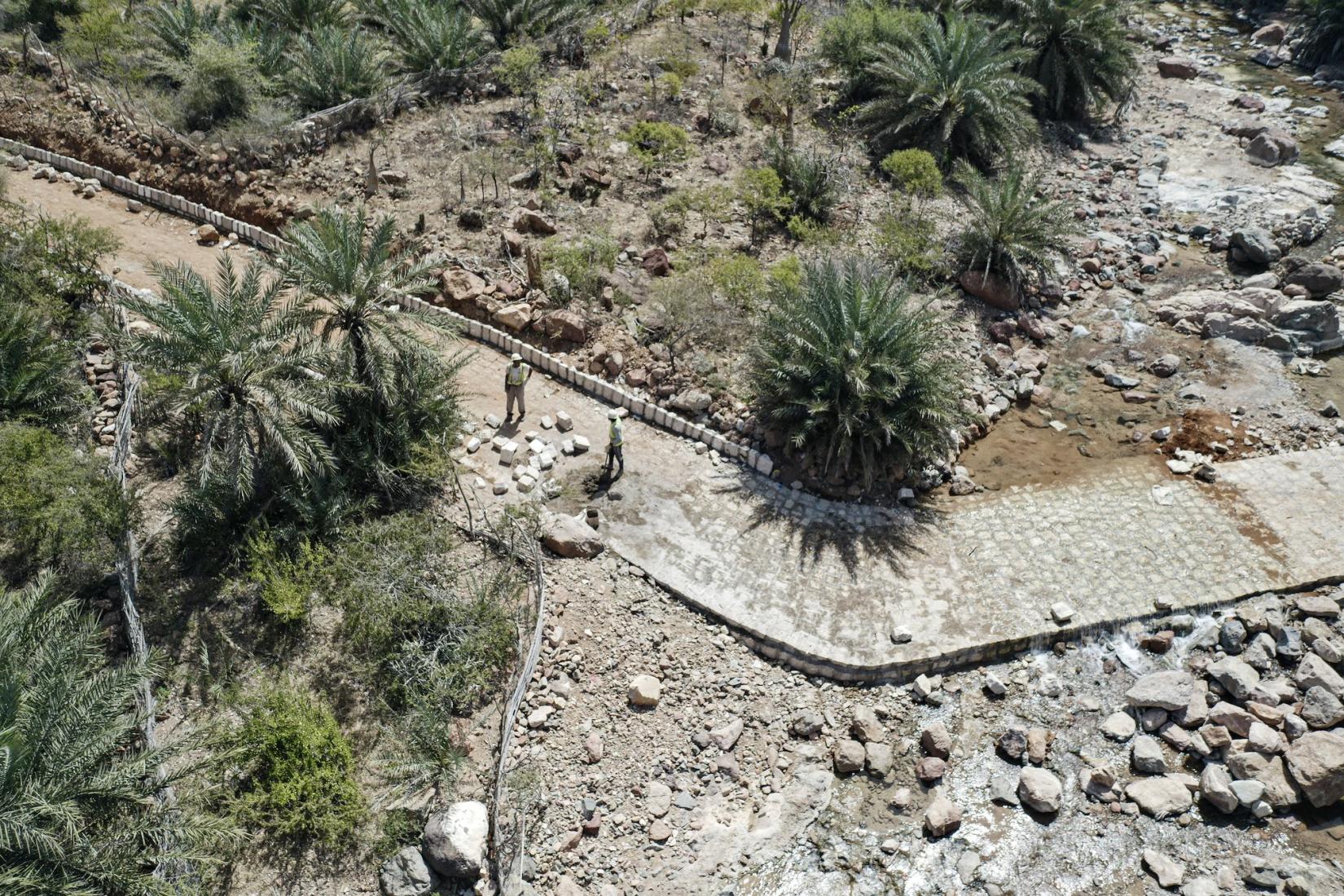
PAVING THE WAY
Floods have severely damaged all vital lifelines to Humahil Reserve. For some villagers like Sa’ad Salem, this was not the first time efforts were made to fix it; but he hopes it will be the last.
As a cash-for-work employee, he joined 524 other community members to fix the road network around his village. “This rugged road gets damaged when it rains. We usually have to fix it by hand without machinery so the road can remain open for cars and the delivery of food,” he says.
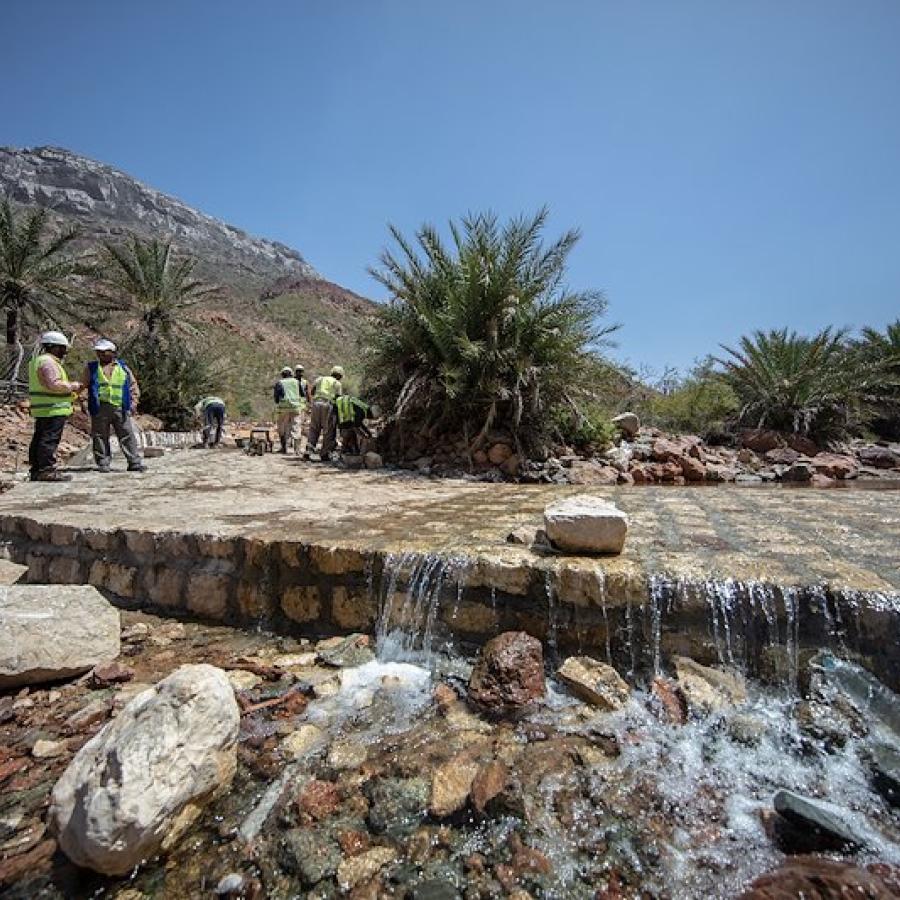
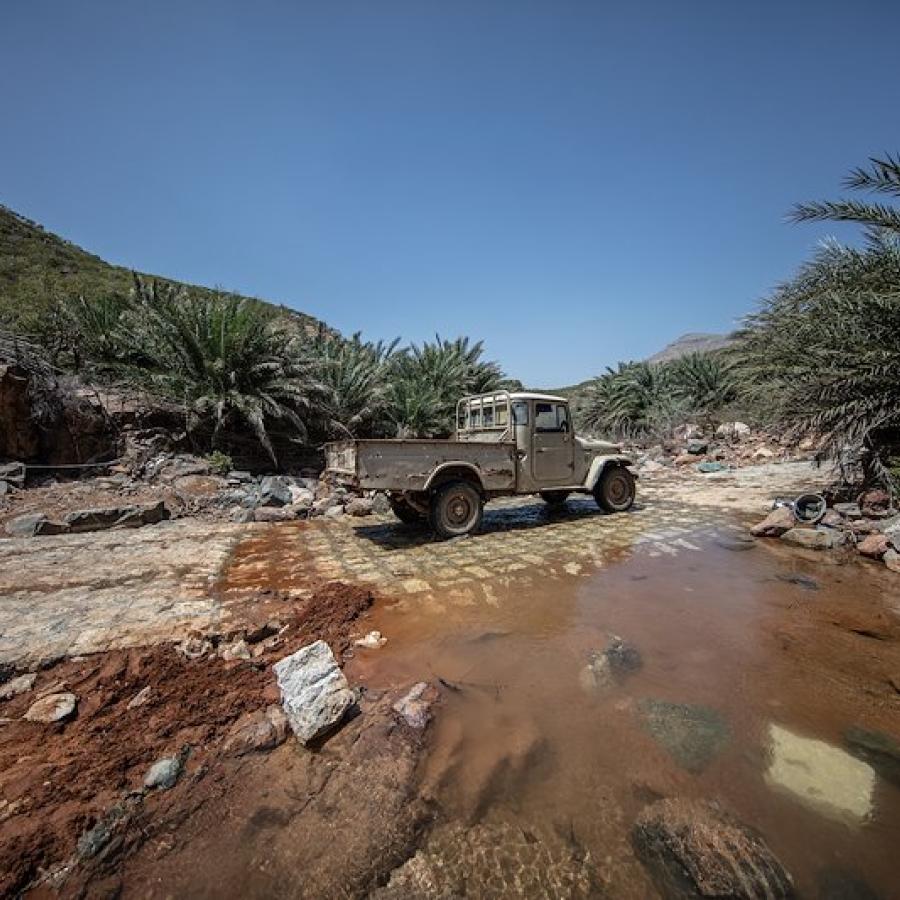
Recently, with the support of the UNDP’s Yemen Emergency Crisis Response Project (YECRP) – and with our local partner SFD – the road was paved with the support of otherwise expensive and difficult to acquire machinery. “In Socotra, we are very remote and cut off from the world due to the rugged roads; nobody had approached our area before,” says Saeed Abdullah.
YECRP also installed rainwater drains so residents can reliably transfer patients to health centers, as well as goods to villages.
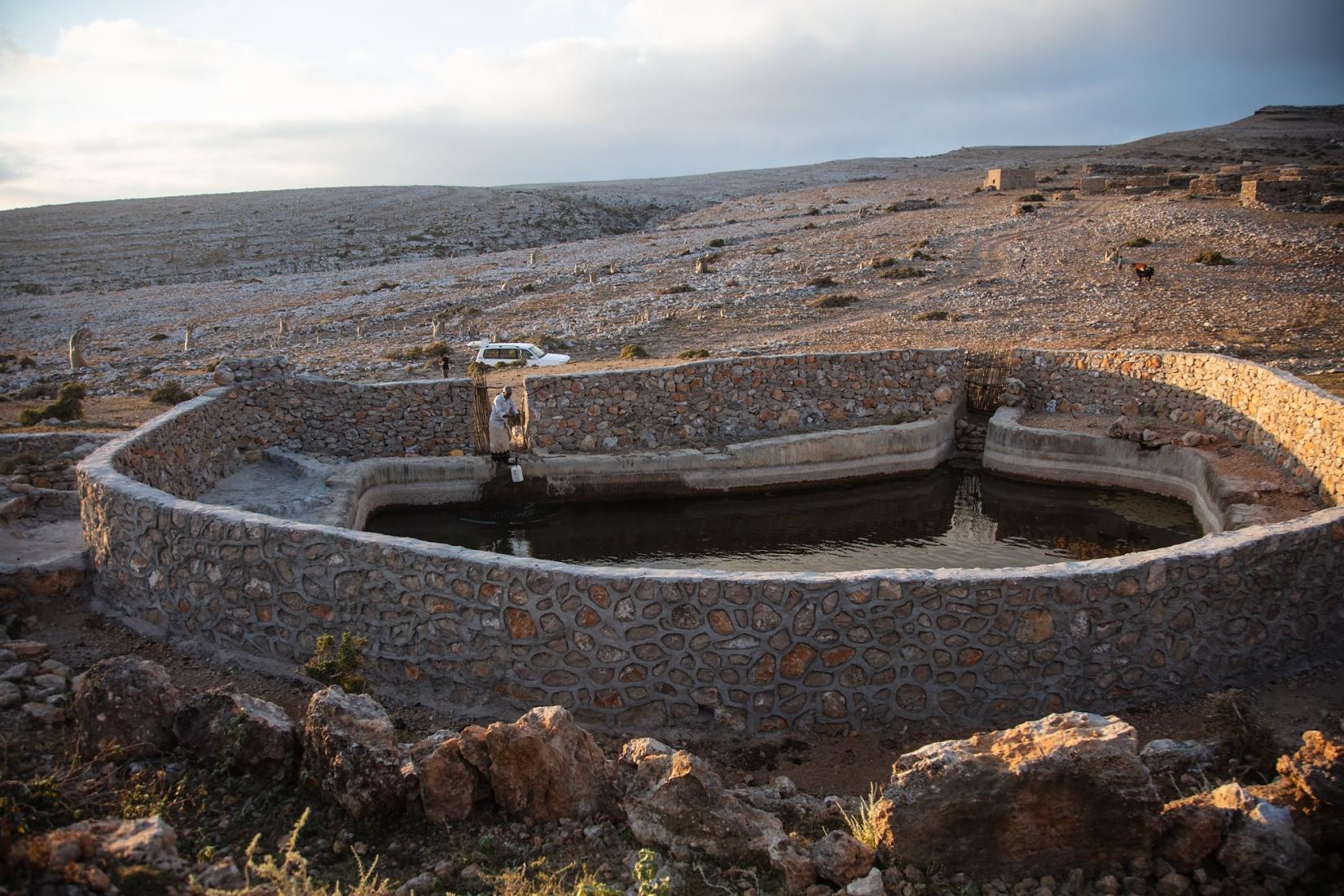
RESERVOIR RESCUE
The YECRP cash-for-work programme has been vital for job creation and in providing the communities with access to key infrastructure and services. Men and women alike, for example, were employed to build local reservoirs that not only provided safe drinking water but have far-reaching social, economic, and health benefits for the community.
The programme has also built 24 public and 110 household rainwater collection tanks. YECRP helped facilitate the water systems projects by paving local roads through cash-for-work programmes that allowed safe passage for vehicles and laborers working to connect the village homes to the water network.
Located in remote areas of Socotra, these projects provided 1,800 people with employment during their duration, as well as provided easier access to lifesaving water. Ali Abdullah Saad, the Coordinator of several Village Cooperative Councils in the province of Dicksm, Socotra explains their importance: “…life is impossible without water. We suffered from having to fetch water, which was mostly brought on the backs of women and children from the remote valley.”
During this project, 80 locals were also employed to support gardening projects, and to raise awareness of common diseases and their prevention to the communities.
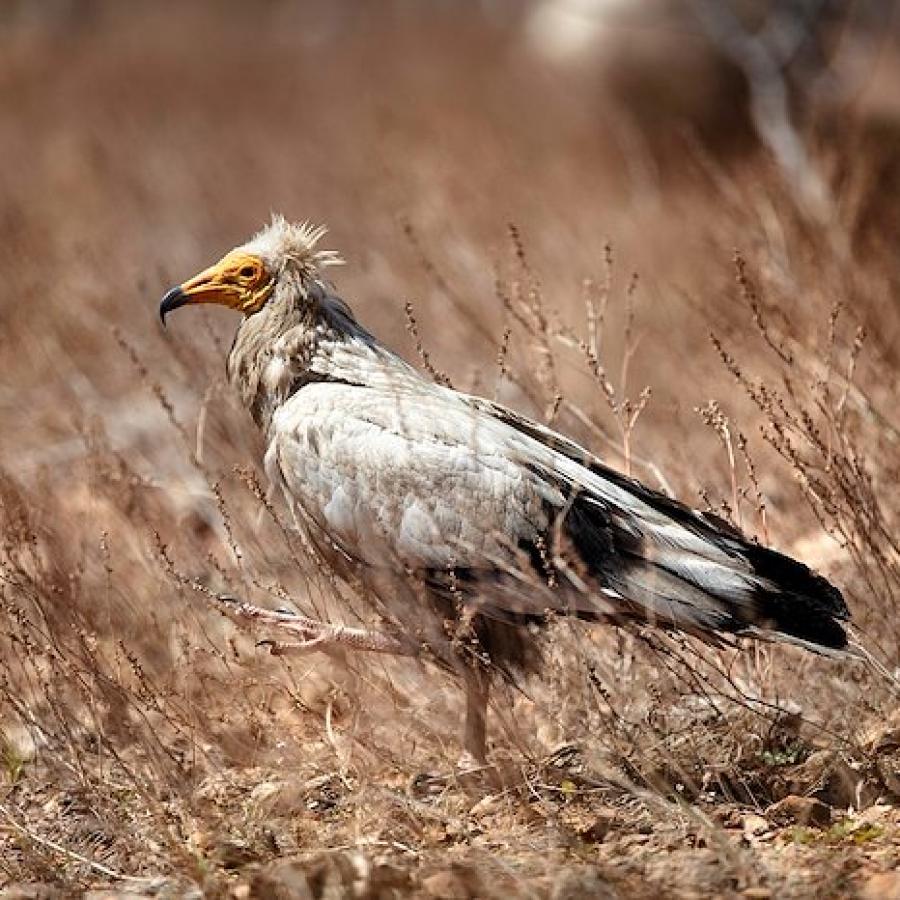
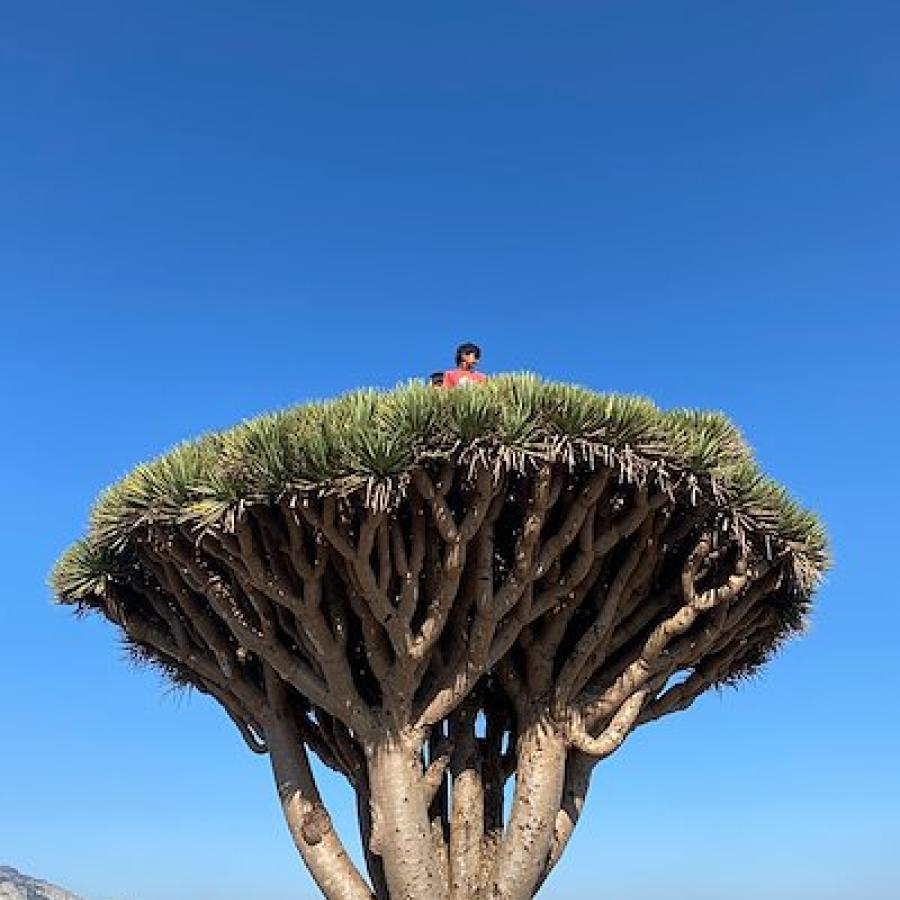
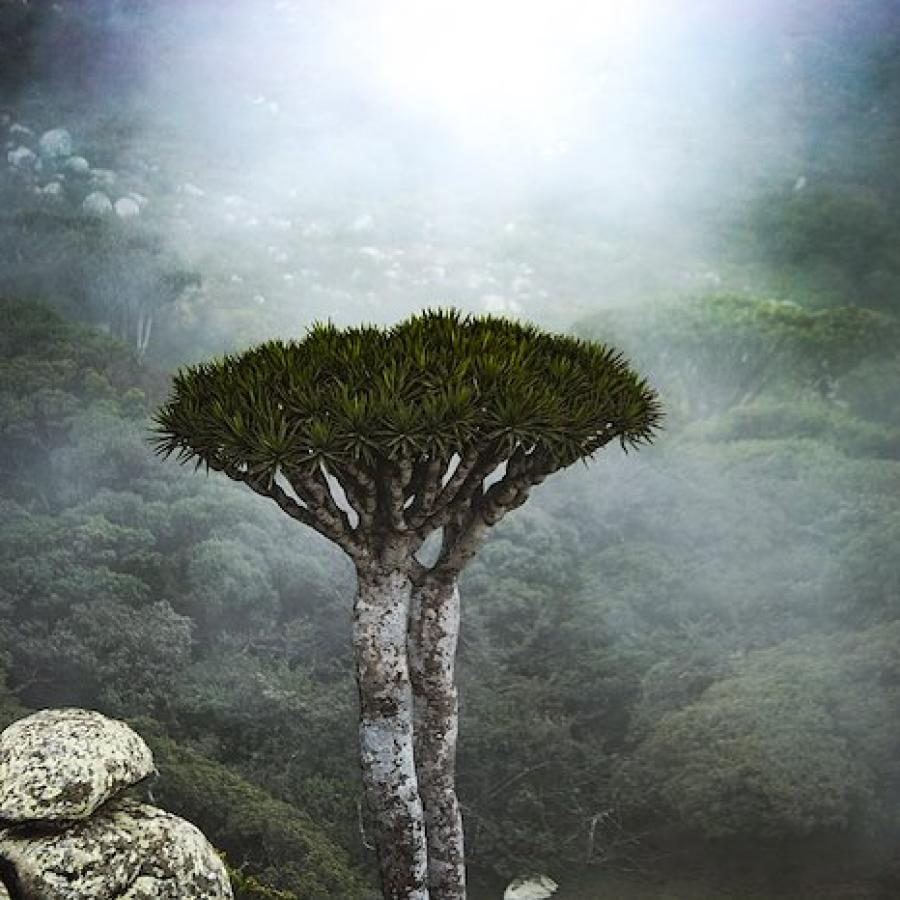
SOCOTRA’S ENDEMIC ECCENTRICITIES
The Dragon’s Blood tree, an image of hardiness with its knotted branches and gnarled trunk, is considered a jewel of diversity in the Arabian Sea. It is the crowning symbol of Socotra, bleeding a deep-red resin and cannot be found anywhere else in the world.
But even this natural wonder, a symbol of Soqotris, has not escaped the mark of civil war. Unfortunately, increasing environmental disasters including raging cyclones and crippling droughts – coupled with reduced international aid due to the on-going war – has resulted in the Dragon Blood’s tree numbers dwindling across the island.
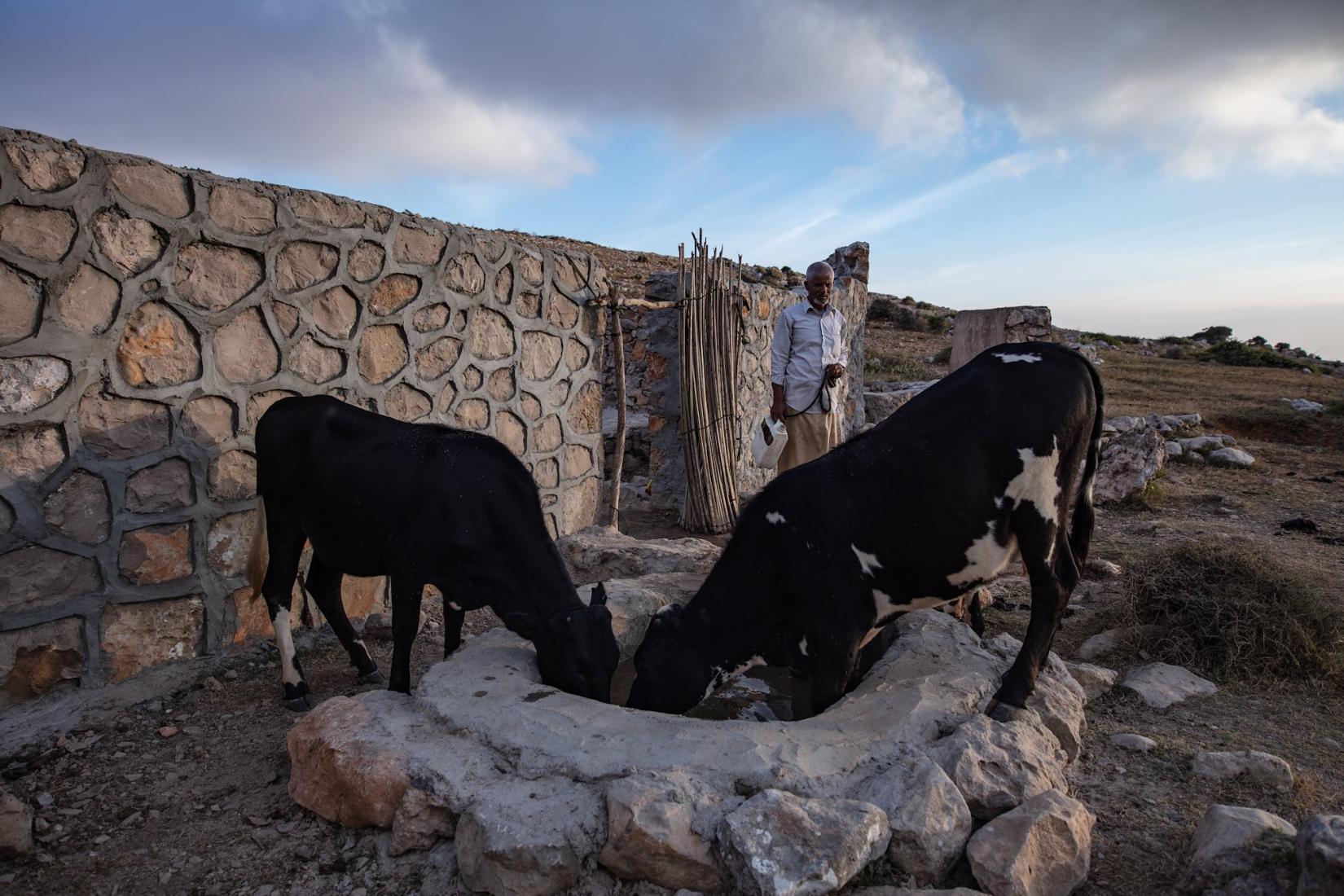
AVERTING DISASTERS
Isolated and plagued by storms and floods, Soqotris struggle with weather in its most extreme. When the rain stops, drought prevails. During the dry season, water reservoirs are the lifeblood of the people of Socotra. However, open reservoirs threatened local communities as children and animals easily fall into them – risking contamination or unfortunate deaths.
YECRP helps communities protect their open rainwater reservoirs through cash-for-work programmes to build protection walls around the water. “Fencing our rainwater reservoirs helps protect our children and animals and prevents diseases from contaminating our water,” says Sulaiman Ali Mubarak, one of the 60 cash-for-work participants from Tawafoq village.
“We also received training while we worked, and working on the project helped [community members] gain experience and new skills,” he notes.
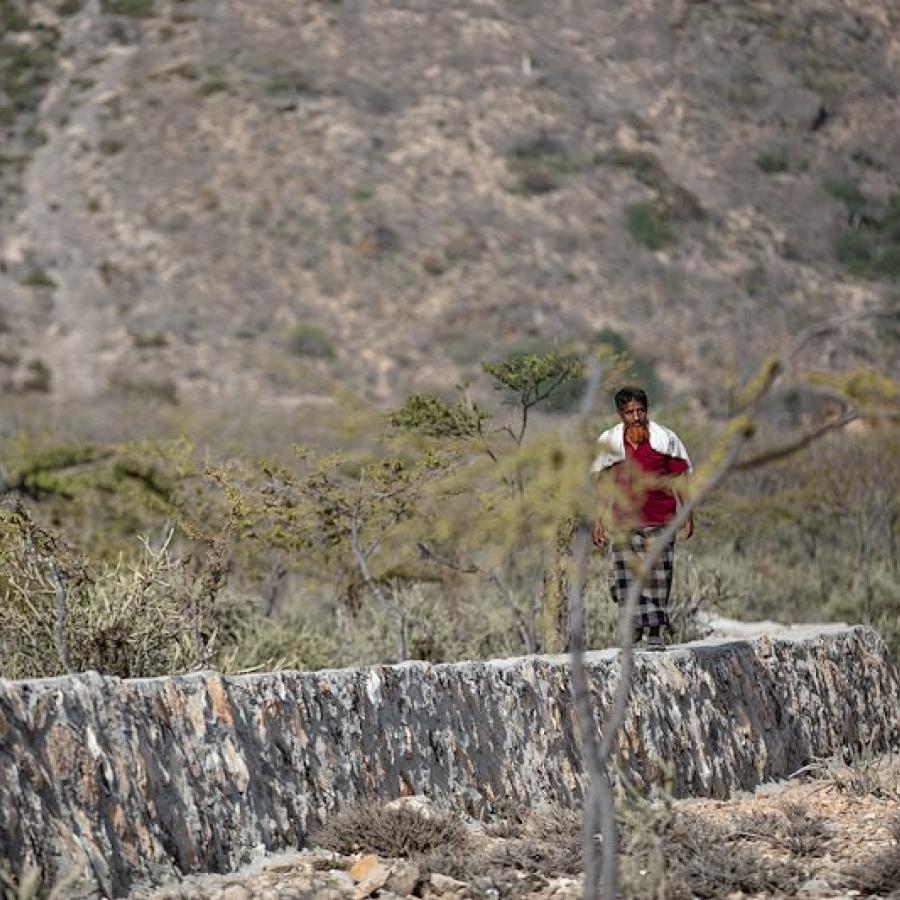
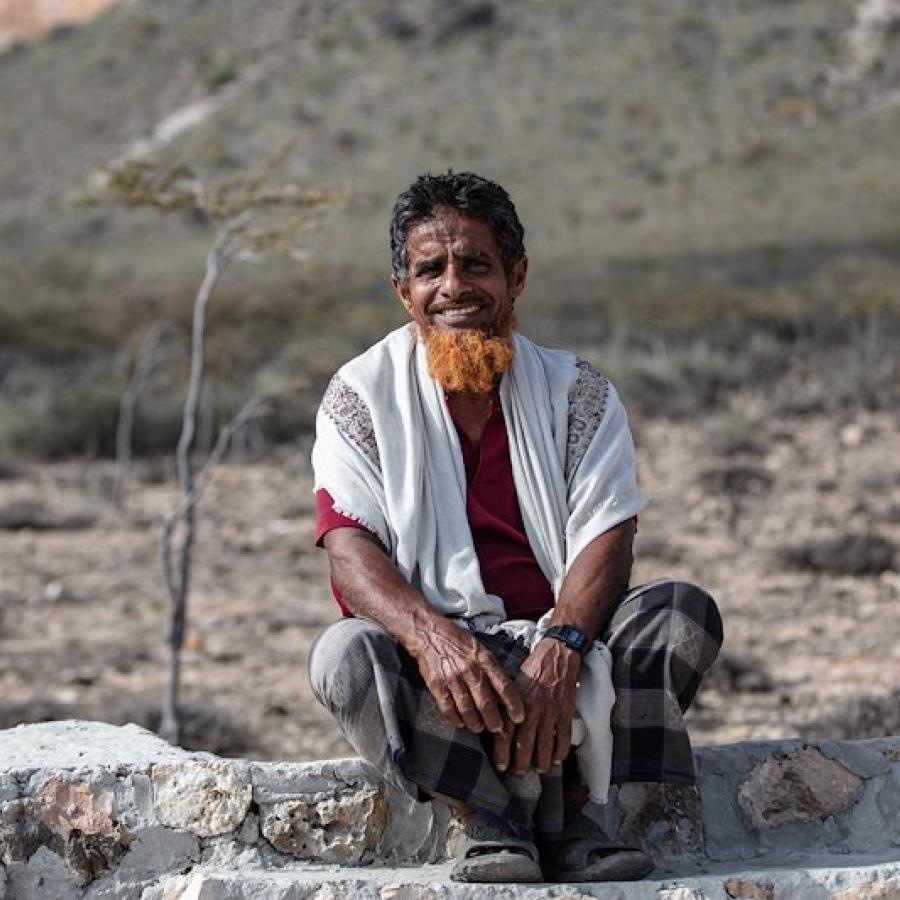
PROTECTION AGAINST FLOODS
Following catastrophic cyclones in 2018, floods submerged many areas across Socotra, destroying properties at a rate faster than recovery efforts. Many rural communities were unable to manage the level of damage sustained following the cyclones.
“The village is located at the foot of the mountain and when the floods and hurricanes hit, trees, sheep, and people were washed away,” explains Salif Salm, a resident of Tibra village. “In hopes of survival, people hide in the caves for several days until the storm subsided and floods passed.”
Residents in Tibra participated in six-month cash-for-work programme to construct a retaining wall that would protect the land and livestock of 50 families. “With this retaining wall, we have a sense of stability, reassurance, and an absence of danger. We have also benefited financially from the cash-for-work,” Salif adds.
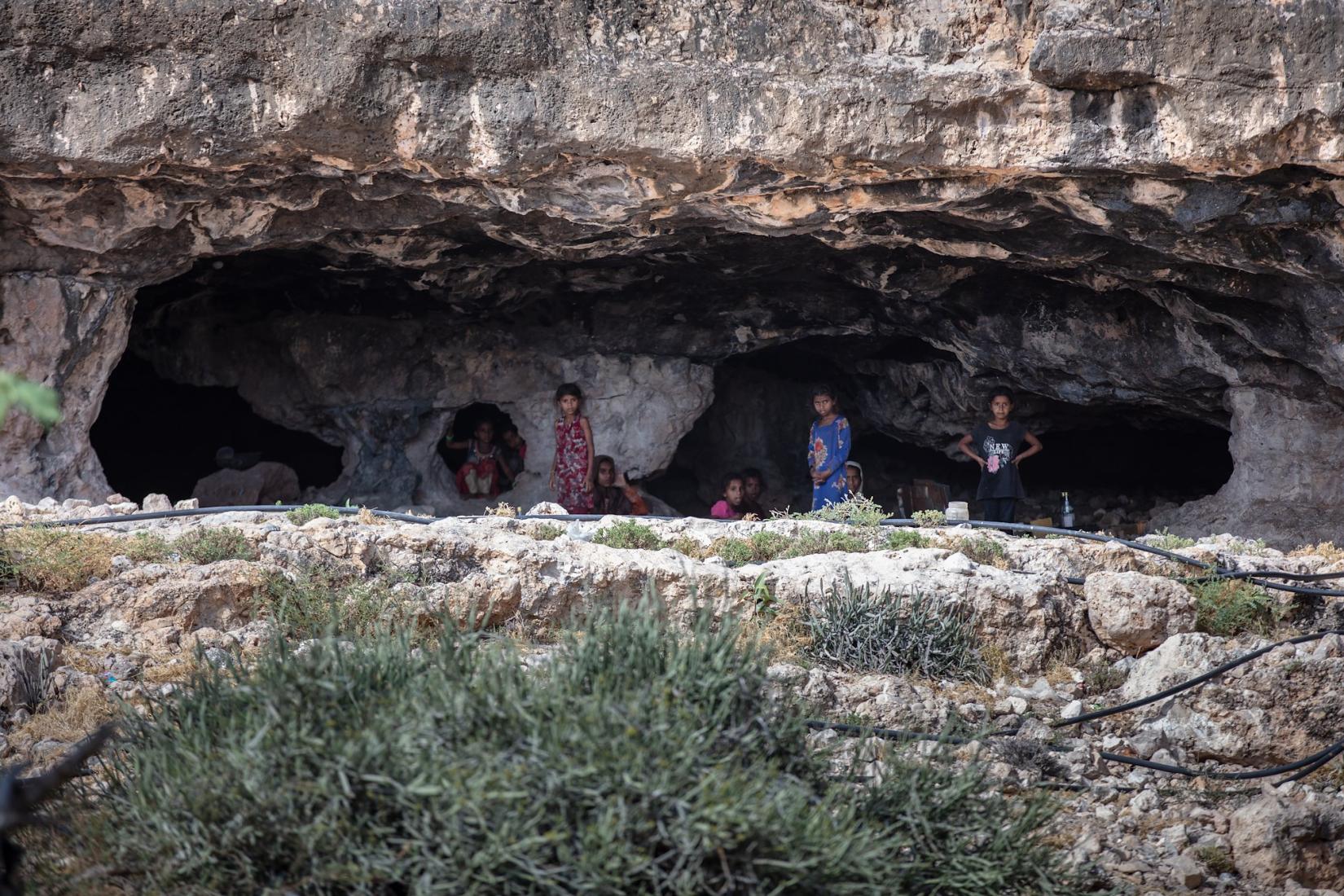
ISOLATED AND EXPOSED
Manal Hussein, a mother of seven, depends entirely on crops to feed her family. Together they grow bananas, melons, tomatoes, potatoes, and chili on their land.
Manal’s crops experienced significant damage in 2015 and 2018 because of severe cyclones that hit the island. “Trees were uprooted by strong winds. Without support we would not have such good crop production,” she says. Over 290 families, just like Manals, have benefited from the cash-for-work programme to safeguard their farms against future disasters.
“[The cash provided] allowed me to construct fences for the garden to protect our crops and ensure we could pay the wages of construction workers,” describes Manal.
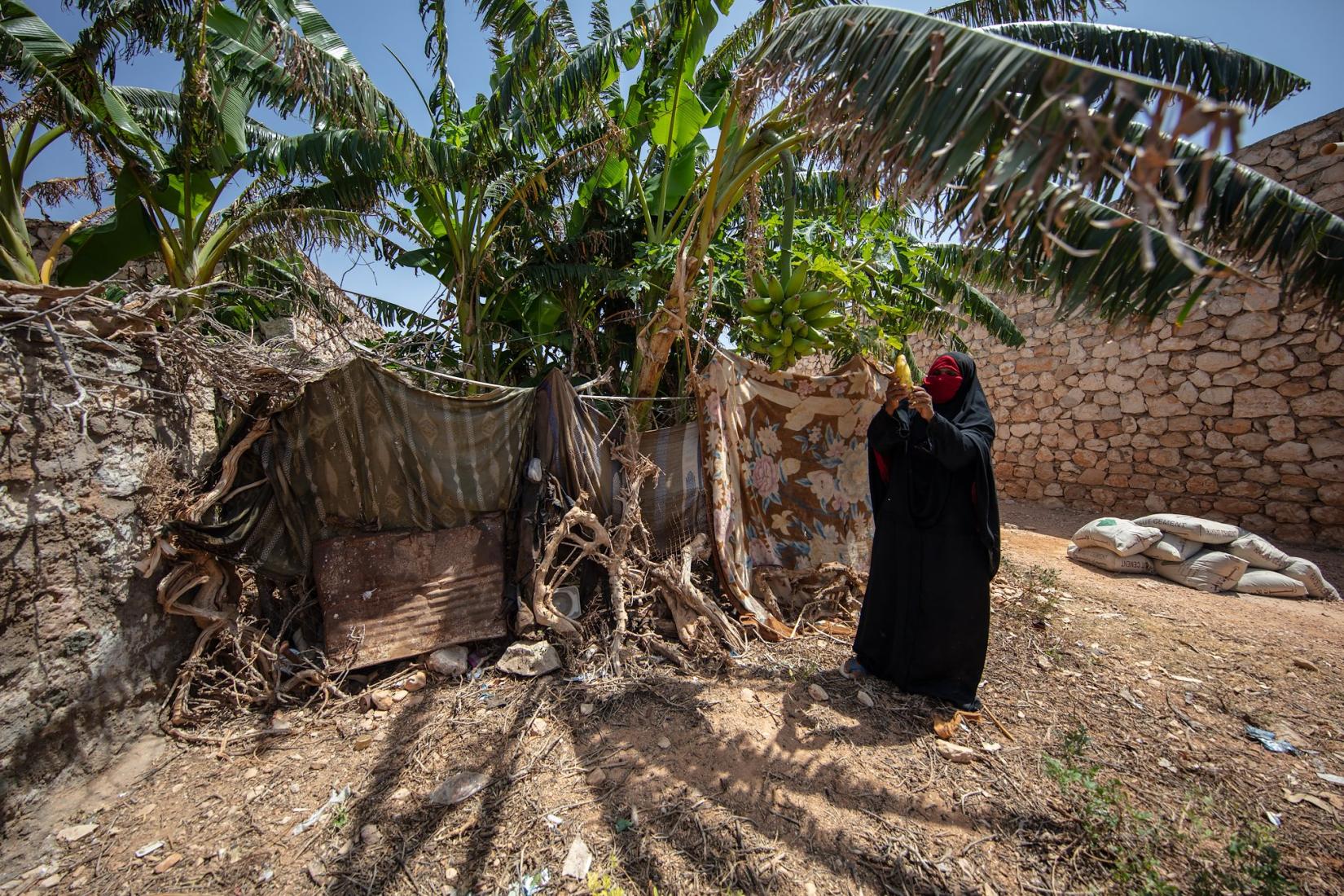
KNOWLEDGE IS POWER
Education is a key component to social and economic development. Safe schools and learning environments are vital to ensure children can thrive and break the cycles of under-development and poverty.
As part of YECRP, the Al-Emam Al Bukhari School was fixed to provide 260 girls and boys with a safe and reliable leaning environment.
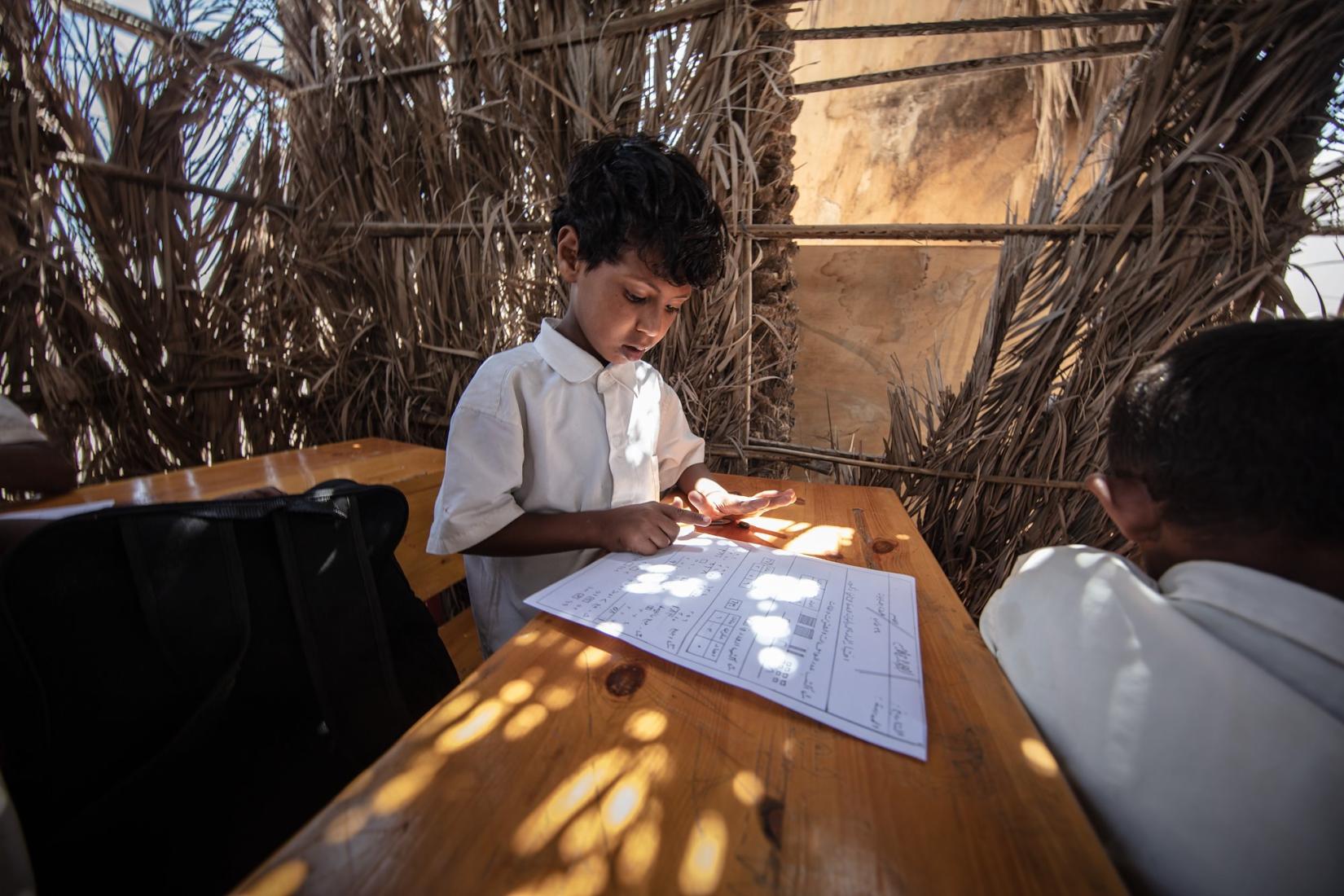
“The old classroom was built of straw and corn canes; it would not stand up to the wind or rain. It was inadequate and could not provide an appropriate learning environment. But this new classroom has been built with stones and cement,” says Mr. Saud, the Principal of Al-Emam Al Bukhari School. “We are also currently working to install a door, plaster the walls, and paint,” he adds.
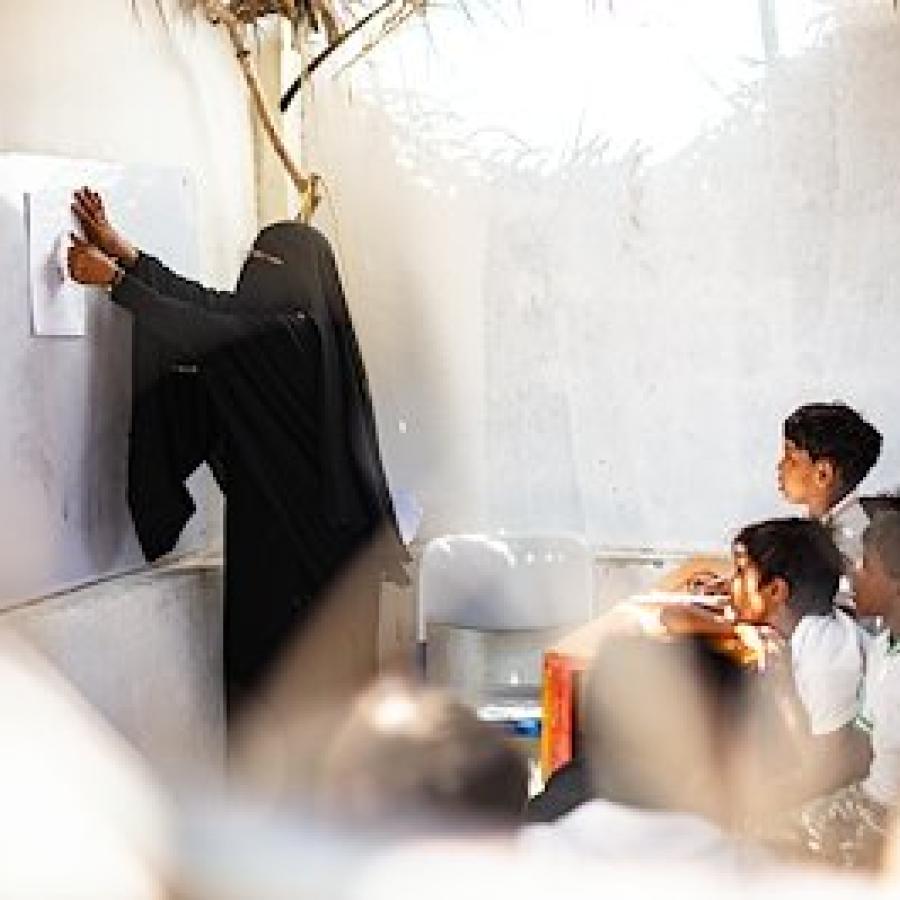
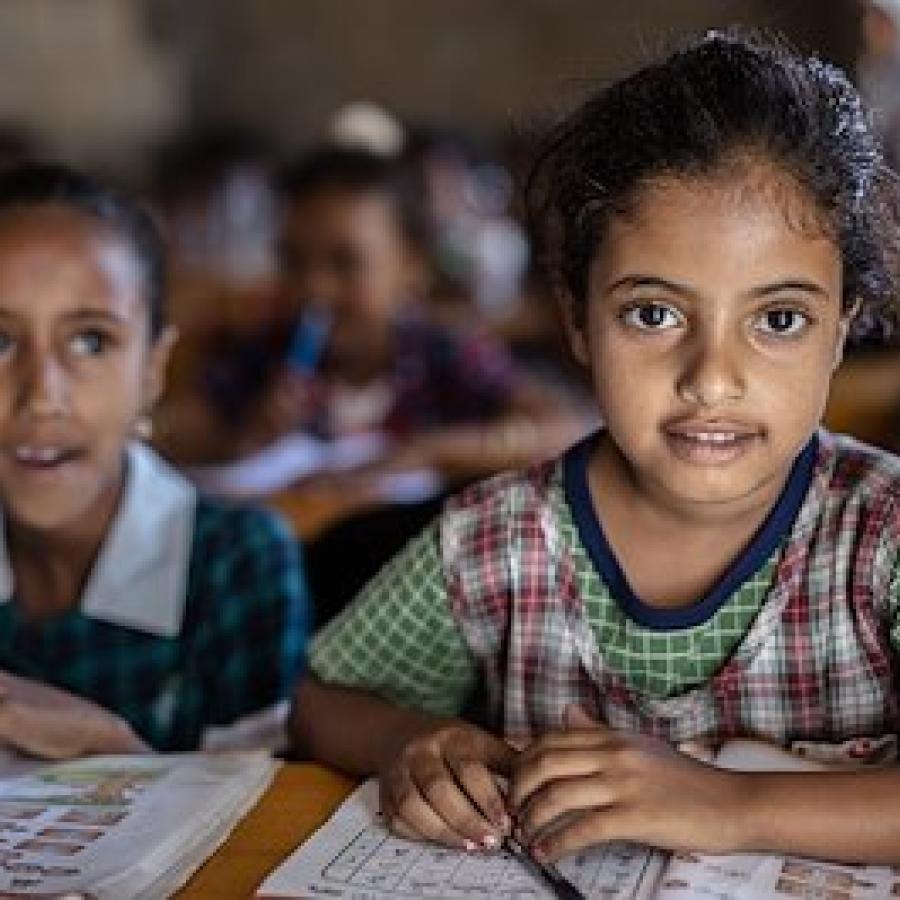
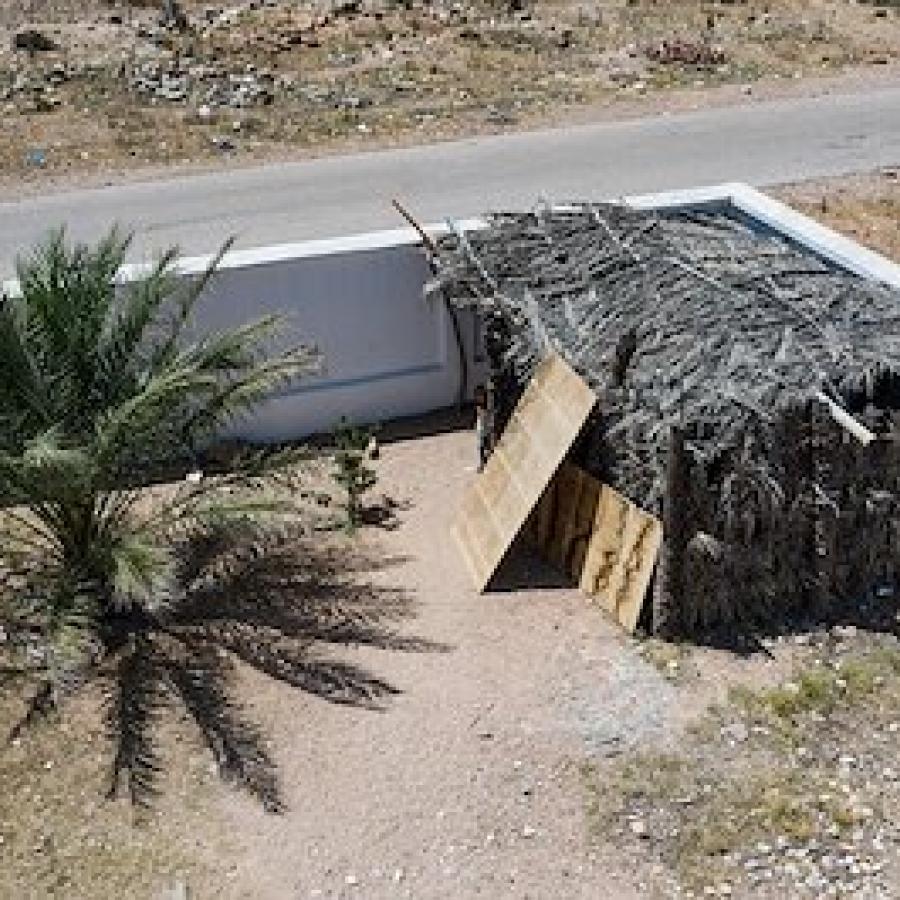
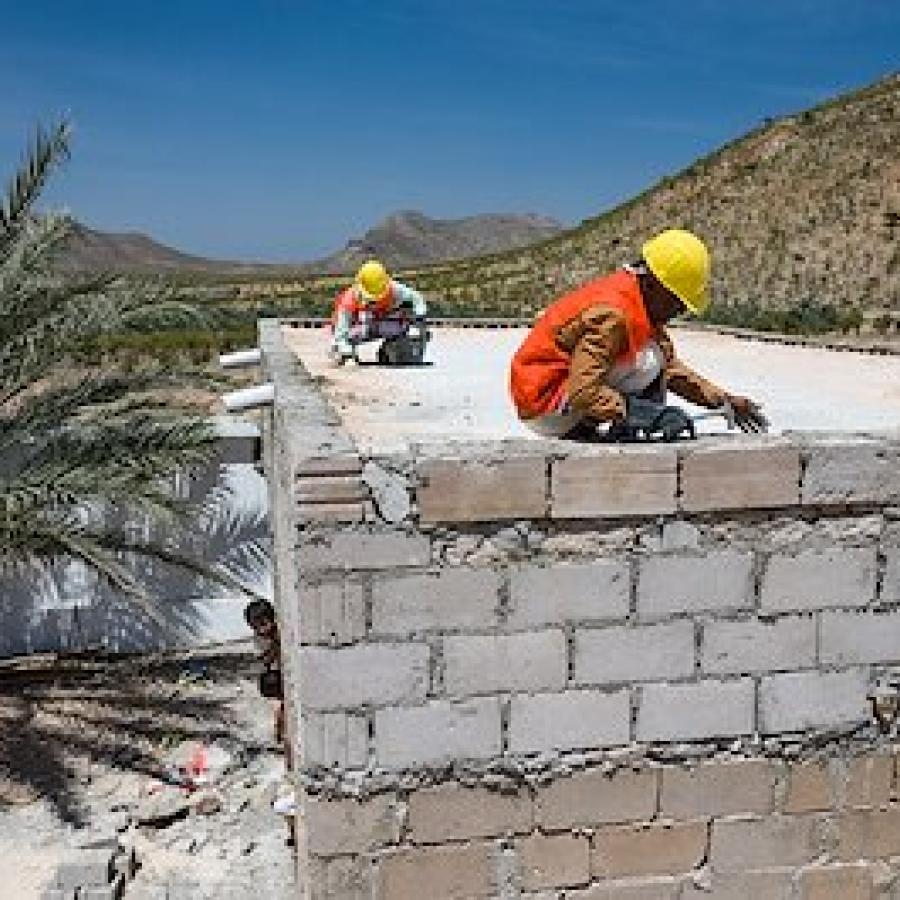
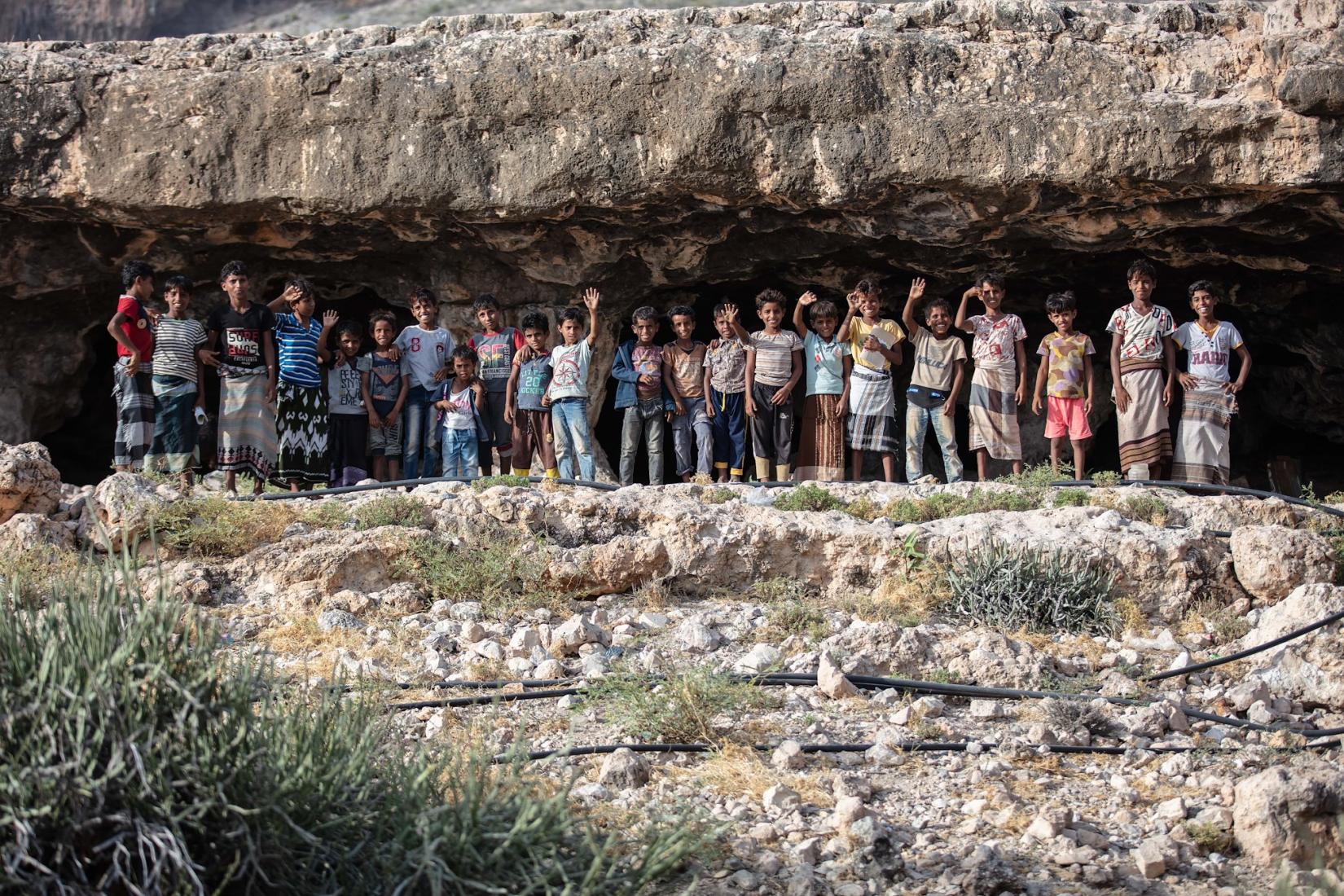
These activities are implemented as a part of UNDP’s World Bank funded and supported project, Yemen Emergency Crisis Response Project (YECRP), which is implemented by the Social Fund for Development (SFD) and the Public Works Project (PWP). The USD $400 million project provides economic stimuli in the form of large cash-for-work projects, support to small businesses, and labor-intensive repairs of socio-economic assets, benefiting vulnerable local households and communities across Yemen.


